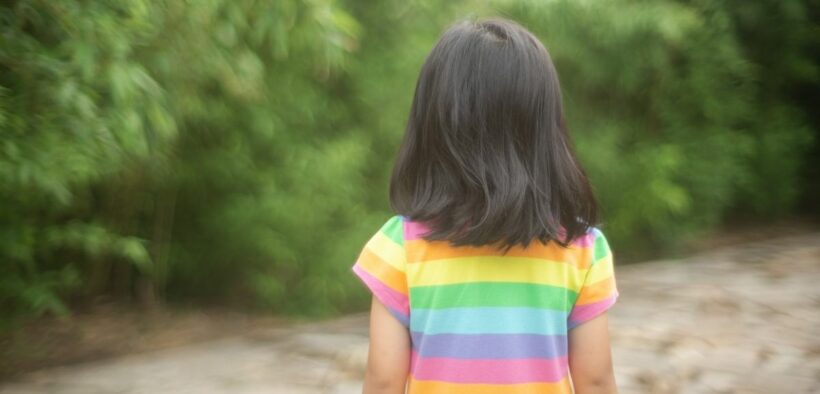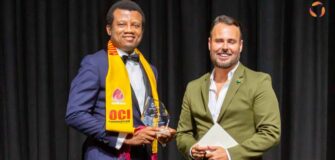A new analysis by the charity for girls’ equality Plan International Australia reveals the setbacks of politics, the pandemic and the patriarchy on girls’ progress.
The research, published on the 10th annual International Day of the Girl, a day celebrating the importance of girls’ rights, found that a combination of factors – including the COVID-19 pandemic, the climate crisis, conflict raging in many regions, harmful gender stereotypes and misogyny, the rise of far right-wing politics and many other intersecting issues such as systemic racism, ableism and transphobia – has profoundly set back progress on girls’ rights around the world.
International Day of the Girl has for ten years shone a spotlight on issues affecting girls and their rights.
The research found that in the last decade, the visibility of girls’ rights has significantly risen and importantly, much of the change and campaigning for girls’ rights are being driven by girls themselves.
The global review found that improvements have been recorded on key gender equality indicators, such as education, child mortality (which has dropped to 34 deaths per 1,000 live births for girls) and legal protections from certain forms of abuse and harmful cultural practices, such as the banning of child marriage in the Dominican Republic in November 2020 and FGM/C in South Sudan in April 2020.
Related: New report finds half a billion teenage girls remain unseen and underfunded in Australian aid
However, a growing youth population means that more girls are being denied rights today – rights that are guaranteed under international law – than in 2012. Together, this means that of the 144 countries in the UN’s Sustainable Development Goals (SDG) Gender Index, which account for 98% of the world’s girls and women, not one country has achieved gender equality.
“We celebrate all girls today but know that change has not been equitable; it has been slow, it has been contested at every turn and continues to be, and many girls, especially those who face intersecting risks, are looking to remain that way for the rest of my life and theirs. How can we stand by and watch this happen?,” said Plan International Australia CEO Susanne Legena.
As of 2020, more than three billion girls and women still live in countries with ‘poor’ or ‘very poor’ scores for gender equality.
There are over 3.7 million girls and young women in Australia aged 24 years and under. Despite their numbers and their powerful intersecting identities, girls, young women and gender-diverse young people encounter deep and systemic inequities in Australian society that impact them every day and in every space.
The report’s key findings on equality for girls in Australia included:
- The number of adolescent pregnancies (ages 15-19) has halved in the last decade in Australia.
- The number of women in the House of Representatives has increased from 25% in 2012 to 38% in 2022. Based on current progress, it will take another decade for equal representation in the House.
- Rates of sexual assault have increased over the decade by 22%. In 2019, the rates of sexual assault for girls and young women aged 15-19 were nine times higher than for males of that age. This is also known to be significantly underreported.
- In July 2022, the NSW Government announced a $30 million investment into 10 pilot projects to co-design parts of the city with girls and women and address street harassment.
- Women with disabilities were 40% more likely to be victims of family violence than women without disabilities and more than 70% of women with disabilities have had violent sexual encounters in their lifetime.
Related: New Plan International report finds Adolescent girls’ rights are a “casualty” of Syria conflict
“The 10-year-old girl is the single most powerful investment we can make, according to the UN. If we can unlock her potential , we can unlock a better world for everyone. In the next decade, I want every girl 10-year-old girl to feel confident that she is equal, she is safe and she can live up to her full potential and realise all her dreams without any restrictions,’ Legena added.
Plan International Australia ambassador Yasmin Poole shared that she grew up with International Day of the Girl and every year she learns more about the global magnitude of discrimination and denial of rights and freedoms of girls.
“I speak out for girls’ rights because I can’t look away.”
“When I was young, I vividly remember witnessing racism and sexism against my mother. At the time, I carried these experiences with feelings of shame and hopelessness. I feel agency by sharing my own story and helping to amplify the realities of girls and young women that are so often left on the sidelines. I am equal parts fascinated and determined to change the systemic drivers that harm us while privileging others,” added Poole.
Menchie Khairuddin is a writer Deputy Content Manager at Akolade and content producer for Third Sector News. She is passionate about social affairs specifically in mixed, multicultural heritage and not-for-profit organisations.
























































































































































